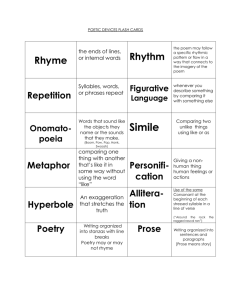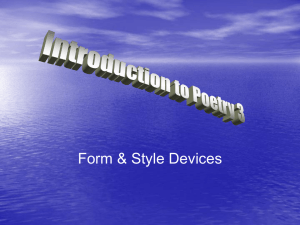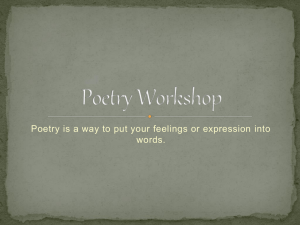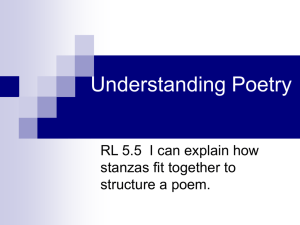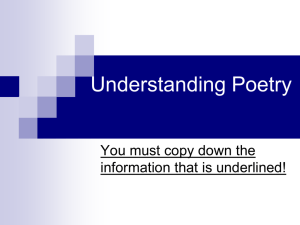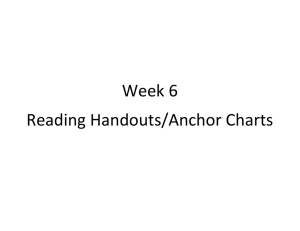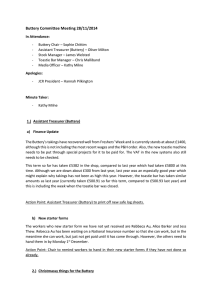Understanding Poetry
advertisement
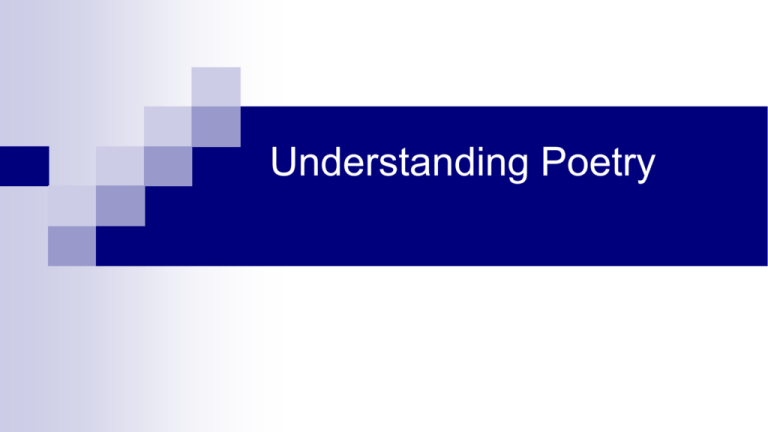
Understanding Poetry In poetry the sound and meaning of words are combined to express feelings, thoughts, and ideas. The poet chooses words carefully. Poetry is usually written in lines. 2 Poetry Elements Writers use many elements to create their poems. These elements include: Rhythm Sound Imagery Form 3 Rhythm Rhythm is the flow of the beat in a poem. Gives poetry a musical feel. Can be fast or slow, depending on mood and subject of poem. You can measure rhythm in meter, by counting the beats in each line. (See next two slides for examples.) 4 Sound Writers love to use interesting sounds in their poems. After all, poems are meant to be heard. These sound devices include: Rhyme Repetition Alliteration Onomatopoeia 5 Rhyme Rhymes are words that end with the same sound. (Hat, cat and bat rhyme.) Rhyming sounds don’t have to be spelled the same way. (Cloud and allowed rhyme.) Rhyme is the most common sound device in poetry. 6 AABB Rhyming Pattern First Snow Snow makes whiteness where it falls. The bushes look like popcorn balls. And places where I always play, Look like somewhere else today. By Marie Louise Allen 7 ABBA Rhyming Pattern From “Bliss” Let me fetch sticks, Let me fetch stones, Throw me your bones, Teach me your tricks. By Eleanor Farjeon 8 ABCB Rhyming Pattern The Alligator The alligator chased his tail Which hit him in the snout; He nibbled, gobbled, swallowed it, And turned right inside-out. by Mary Macdonald 9 Repetition Repetition occurs when poets repeat words, phrases, or lines in a poem. Creates a pattern. Increases rhythm. Strengthens feelings, ideas and mood in a poem. (See next slide for example.) 10 Repetition Example The Sun Some one tossed a pancake, A buttery, buttery, pancake. Someone tossed a pancake And flipped it up so high, That now I see the pancake, The buttery, buttery pancake, Now I see that pancake Stuck against the sky. by Sandra Liatsos 11 Lines and Stanzas Most poems are written in lines. A group of lines in a poem is called a stanza. Stanzas separate ideas in a poem. They act like paragraphs. This poem has two stanzas. March A blue day A blue jay And a good beginning. One crow, Melting snow – Spring’s winning! By Eleanor Farjeon 12
